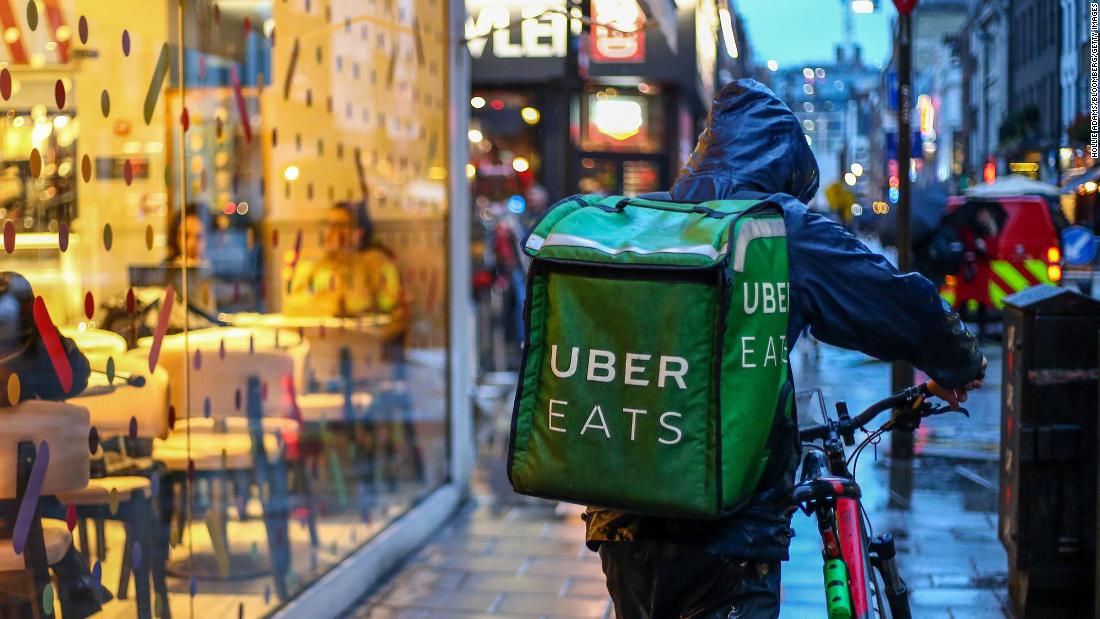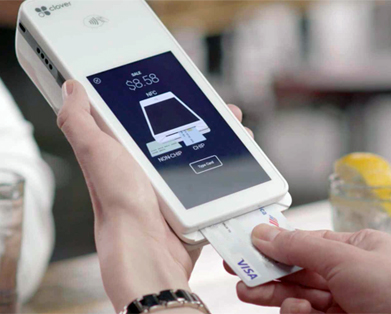London (CNN Business) - Uber has made a major concession on labor rights in the United Kingdom. But that doesn't mean the gig economy will transform into a workers' paradise overnight.
The company announced on Tuesday that it will reclassify its drivers as "workers," entitling them to the minimum wage, paid vacation time and a pension. "We're turning the page on driver rights," CEO Dara Khosrowshahi wrote in an op-ed published by the Evening Standard.
The move comes after the UK Supreme Court last month upheld a ruling that Uber drivers should be classified as workers and not independent contractors. "Workers" are granted some protections under the country's employment laws, but they do not receive the same rights as people classified as "employees."
Labor lawyers have cheered the policy changes. But the decision to grant more benefits applies only to Uber (UBER) drivers in the United Kingdom and may not significantly improve their pay. It does not include people who deliver food for Uber Eats, and there's no guarantee that other gig economy companies will follow Uber's lead.
"There's obviously been so much pressure from drivers and trade unions who would support a class action against Uber," said Rebecca Thornley-Gibson, a partner at London law firm DMH Stallard. The company was "left with no choice" but to meet its legal obligations, she added.
Fighting since 2016
Uber fought a five-year legal battle against the change in conditions, which comes with some notable limitations, underscoring the challenges faced by gig economy workers who want to secure traditional employment benefits.
For example, Uber Eats delivery workers will continue to be classified as independent contractors. While the Supreme Court ruling was limited to private vehicle hire, this suggests that the onus to enforce employment protection legislation may continue to fall on workers. And the changes might not lead to considerably higher earnings for drivers.
Drivers have contested Uber's approach to how it plans to calculate the minimum wage, which is based on the time that drivers are assigned to trips, even though the court determined that drivers are working from the time they turn on Uber's app.
"This means that Uber drivers will be still short-changed to the tune of 40-50%," Yaseen Aslam and James Farrar, the former drivers who led the legal action against Uber, said in a statement. They added that the company has "arrived to the table with this offer a day late and a dollar short."
While the Supreme Court's definition of "working time" was more generous than the policy announced by Uber on Tuesday, it ruled that if drivers are also able to work for rival operators, as some now are, then "the same analysis would not apply."
Uber has not yet announced how it plans to deal with benefits owed for past work. A person familiar with the matter told CNN Business that the company plans to communicate with eligible drivers in the coming weeks about settling historic benefit payments.
The cost of settling historic benefits could exceed $400 million, according to Justin Post, a research analyst at Bank of America. But the policy changes are unlikely to have a lasting impact on Uber's expenses because they could encourage more drivers to use the app and reduce the need for the company to attract them with financial incentives.
Changing the gig economy
Whether Uber's about-face leads to changes elsewhere in the gig economy remains unclear, particularly given that business models differ. "Each business model will need to be looked at afresh by the courts, but companies certainly should be reading the Uber judgment," said Thornley-Gibson.
Lawyers suggest that some firms could follow Uber's lead even without workers mounting new legal challenges.
"It's not going to look good for other firms from a [public relations] point of view let alone legal one, to continue holding out that their workers are purely 'self-employed' when Uber has finally acknowledged otherwise," said Philip Landau, an employment lawyer at Landau Law in London.
Nigel Mackay, a partner at Leigh Day, which is representing Uber drivers in the case that went before the Supreme Court, said that the Uber decision could reduce the need for workers to bring legal claims.
"It is our hope that other companies using a similar business model take note and recognize that the people working for them should be given basic rights such as holiday pay and the National Minimum wage, without them having to bring claims," he added.
Leigh Day is acting for over 4,000 Uber drivers who are now seeking to join the original case and win compensation from the company.
This article was originally published by Hanna Ziady, edition.cnn.com.










